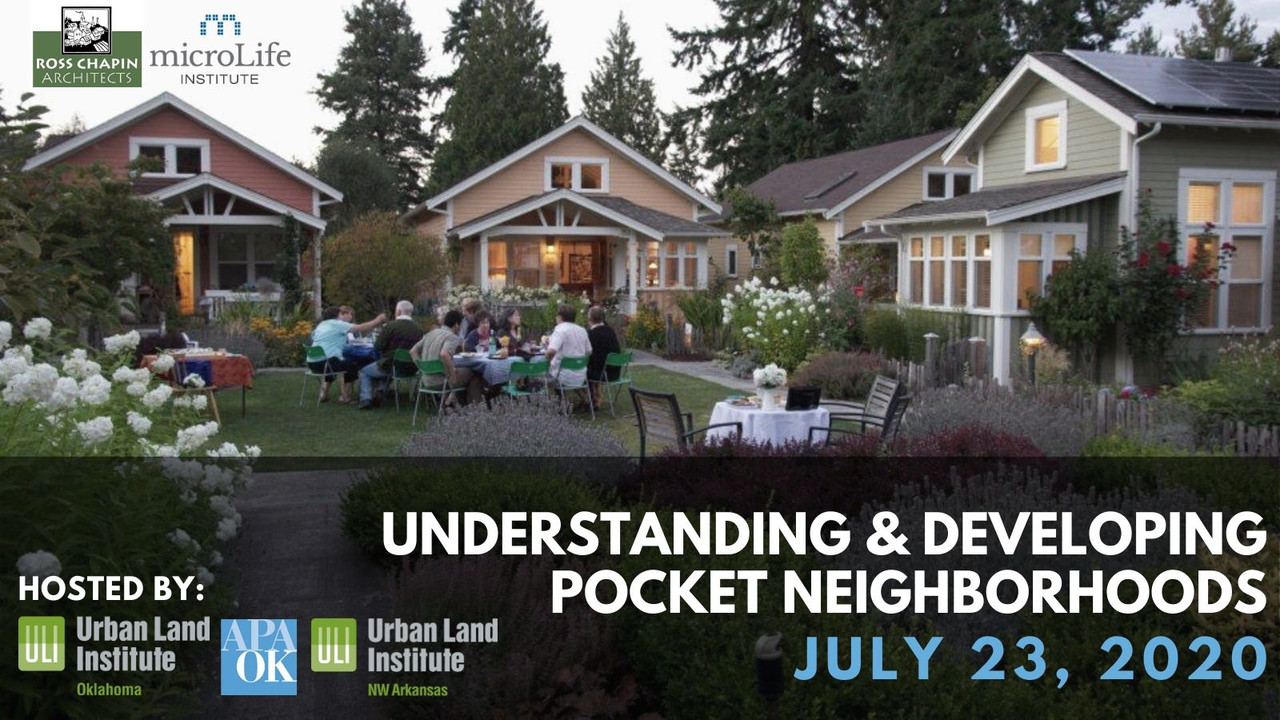Share:
Understanding & Developing Pocket Neighborhoods
REGISTER NOW
AICP CE credit (3CMs) available thanks to our Continuing Education Partner APA Oklahoma


 Ross Chapin FAIA, Ross Chapin Architects
Ross Chapin FAIA, Ross Chapin Architects Kim Bucciero, MicroLife Institute, Inc.
Kim Bucciero, MicroLife Institute, Inc.
Kim Bucciero is the founder and owner of Tiny South, and a board member and the CFO of MicroLife Institute. She is an entrepreneur who has worked in the real estate and development field since 2003. Kim brings a variety of experience to the MicroLife Institute, including development, zoning, and permitting expertise which is crucial to make micro housing a viable permanent housing solution. From 2007 to 2009 she served as the Director of Real Estate and Development at Southeast Towers, where she managed nearly 200 semi-industrial projects from site acquisition to construction completion. From 2009 to 2016 she owned and operated Telecom Development Services, which provided development services and managed hundreds of projects for clients such as AT&T, Verizon and American Towers. She transitioned into residential real estate in 2015 helping to form MicroLife Institute and later Tiny South. She is proud to have led the development process of Eco Cottages at East Point, for which the city approved 40 homes under 1000 square feet to be built in 2021. She also developed The Nest at Brannon Ridge Reserve, which will include 30 sustainable homes in an all solar community in north Georgia. Finally, she managed the development of The Cottages on Vaughan, the first pocket neighborhood of tiny houses under 500 square feet for sale in the Atlanta area. As a native from Atlanta and graduate of Georgia Tech, Kim is proud to call Atlanta home and values bringing naturally affordable housing to her fellow neighbors.
 Will Johnston, MicroLife Institute, Inc.
Will Johnston, MicroLife Institute, Inc.
Will Johnston is the Executive Director of the MicroLife Institute and a thought leader and innovator in the micro living world. Over the past six years, his organization has enabled policy change and brought acceptance of micro structures in the Southeast through events, projects and advocacy. His philosophy is allowing people to think outside the box by putting them in one. Before founding the MicroLife Institute, Johnston was Manager for Community and Customer Engagement at The Atlanta Journal Constitution. Over his tenure he expanded his talent in event marketing and production as well as built his network in Atlanta and worked with several Non-Profits fundraising and producing events. Johnston is an avid traveler and loves staying in the smallest of places all around the world. He is a graduate of LEAD Atlanta and Class of 2019 ULI Atlanta Center for Leadership Program. He is currently on the Board of the AJC Decatur Book Festival.

Episode 47 - CNU25.Seattle: Pocket Neighborhoods Tour from Active Towns Initiative on Vimeo.
